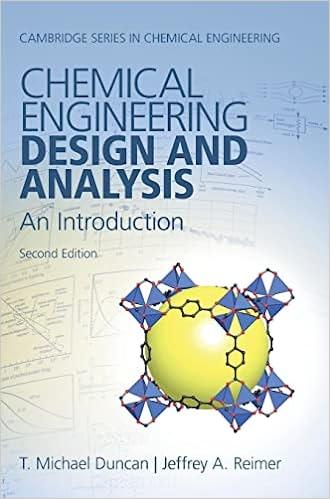Question
This problem deals with the amplitude of molecular vibration of a diatomic molecule in its ground vibrational state. (a) When the molecule is stretched by
This problem deals with the amplitude of molecular vibration of a diatomic molecule in its ground vibrational state.
(a) When the molecule is stretched by an extent x from the equilibrium position, the increase in the potential energy is given by the integral
0x kx dx
where k is the force constant. Evaluate this integral.
(b) To calculate the amplitude of vibration, we equate the potential energy with the vibrational energy in the ground state. Use xmax to represent the maximum displacement.
(c) Given that the force constant for H35Cl is 4.84 102 N m-1, calculate the amplitude of vibration in the u = 0 state.
(d) What is the percent of the amplitude compared to the bond length (1.27 A)?
(e) Repeat the calculations in (c) and (d) for carbon monoxide, given that the force constant is 1.85 x 103 Nm-1 and the bond length is 1.13 A. (35Cl: 34.97 amu.)
(hints: This one is a bit mathematical but gives nice insight into bond vibration amplitudes. For part (b) you should equate the v=0 vibrational energy with the potential energy you calculate in part (a), letting x = xmax.)
Step by Step Solution
There are 3 Steps involved in it
Step: 1

Get Instant Access to Expert-Tailored Solutions
See step-by-step solutions with expert insights and AI powered tools for academic success
Step: 2

Step: 3

Ace Your Homework with AI
Get the answers you need in no time with our AI-driven, step-by-step assistance
Get Started


